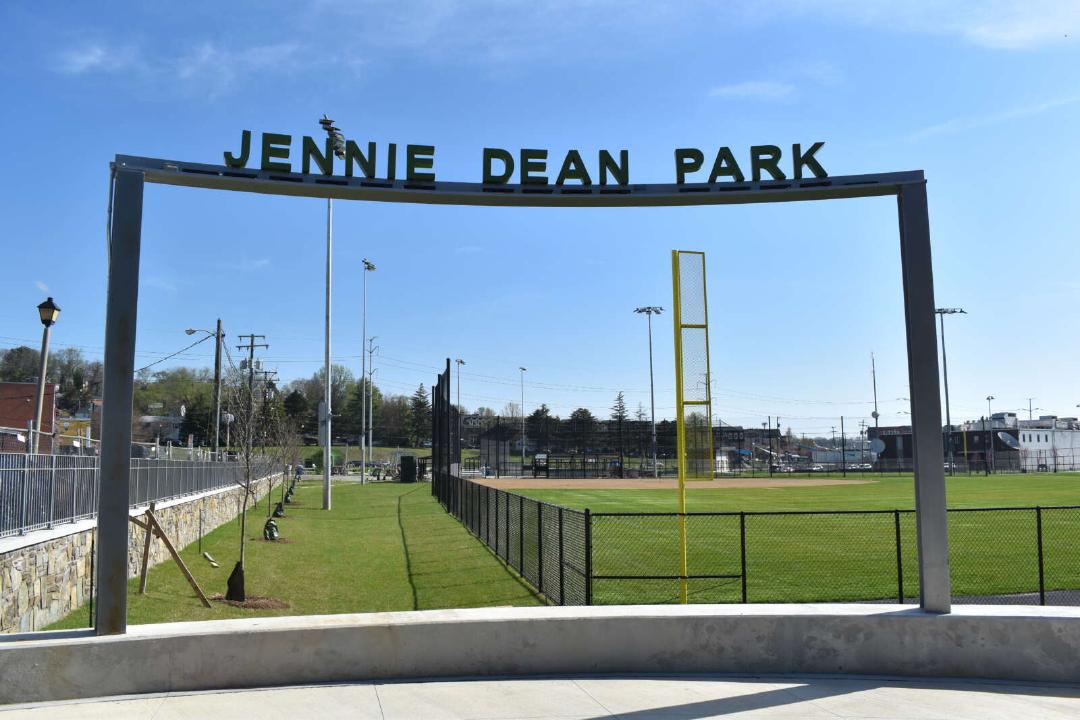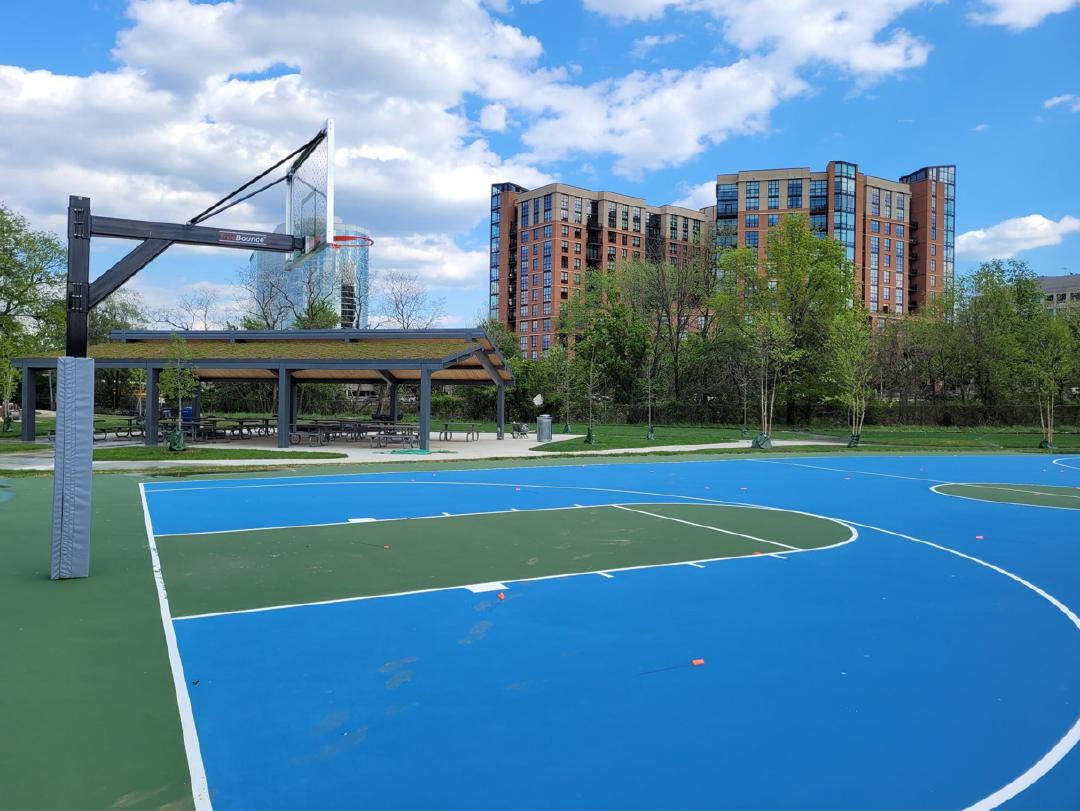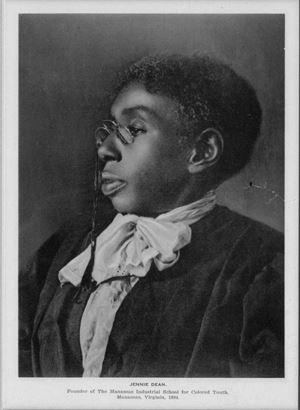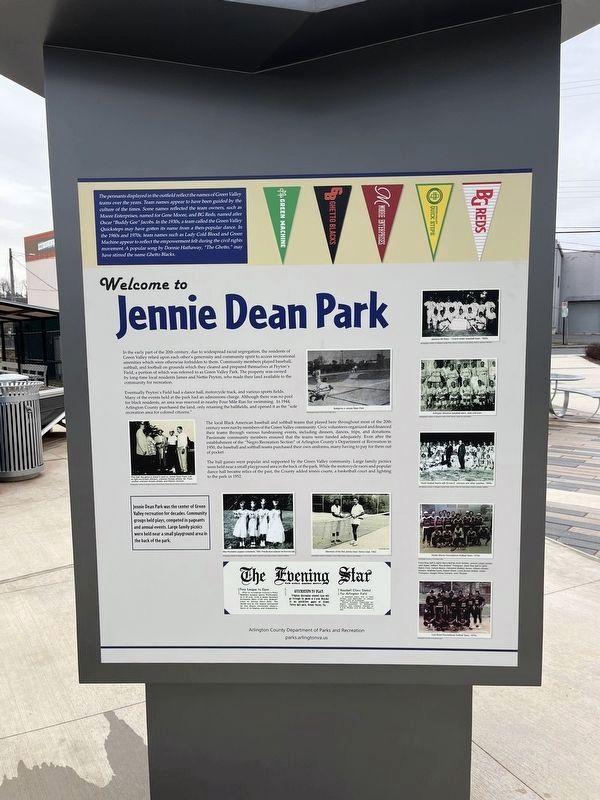Jennie D. Park

Starting in the 1930s, the park became a major hub for Black baseball clubs in the region, where game days were lively, social epicenters for the community.
In May 2022, Arlington County reopened the newly renovated Jennie Dean Park, an integral part of the Green Valley community for over 75 years. Building upon its history and the community’s love of sports and arts, the park has been transformed into an exciting place to celebrate the area’s past and cultural heritage while increasing access to recreation and nature.
“Jennie Dean Park has reflected Arlington County since its inception,” said Arlington County Board Chair Katie Cristol. “When the County was segregated, this was the park for Black Arlingtonians. And it reflected their love of community, sports, and arts. These new renovations build upon that history and have honored and enhanced it.” Jennie Dean Park has been expanded by 2.25 acres, allowing for a more extensive, modern playground. The picnic shelter was renovated so it’s fully accessible along Four Mile Run, and the restrooms were updated to be all-gender. The diamond fields and athletic courts were relocated to increase playability with more efficient LED lights. There is also a new history walk with a timeline of significant events at Jennie Dean Park.
As part of the new park, artist Mark Reigelman developed a site-specific public art, Wheelhouse, inspired by the mill in this location in the early 1700s and the park’s rich recreational history. The History of Jennie Dean Park During the planning process, Arlington worked closely with the Green Valley Civic Association and its history working group to incorporate several features to honor and celebrate the park’s past.
Starting in the 1930s, the park became a major hub for Black baseball clubs in the region, where game days were lively, social epicenters for the community. Over the next few decades, more teams were formed, both semi-pro and recreational, run by members of the Green Valley community. Along the fence of the diamond fields are several pennants of the historic semi-pro and recreational teams from Green Valley – team names included Green Valley Quicksteps, Green Machine, and Over the Hill Gang – designed by local graphic artist Ted Irvine in collaboration with the Green Valley Civic Association. The two fields have been named after Ernest E. Johnson and Robert Winkler to recognize their profound contributions to the Green Valley Community.
Johnson became the director of Arlington County’s “Negro Recreation Section,” a separate division of the County’s segregated Department of Recreation in 1950. Under Mr. Johnson’s leadership, the “Negro Recreation Section” expanded to include a variety of sports, dance, theater, musical and community events for all the Black American communities in Arlington. He was a vital figure in the County’s African American community and oversaw Arlington recreation's desegregation in the early 1960s. He went on to serve the County for two more decades.
MORE: Cub Scout Pack 589 and Ernest Johnson Robert Winkler was raised in Green Valley and worked for Arlington’s Department of Parks and Recreation for over 40 years. Mr. Winkler coached sports for Green Valley youth and the Drew women’s softball team and was a community activist who protected and preserved local fields for community sports.
The County began master planning the park as part of the Four Mile Run Valley community effort and adopted the Four Mile Run Valley Park Master Plan and Design Guidelines in September 2018. The Park Master Plan illustrated the significant elements of the park and their general location and provided guidelines for the look and feel of the park. The county worked closely with the community to refine details and finalize the park design. On Nov. 16, 2019, the County Board approved the construction contract for the project.
Jennie Dean has been integral to the Green Valley community in southern Arlington for more than 75 years. As the nearby community has grown, demand for public space and recreational options has spiked. The County began master planning the park as part of the Four Mile Run Valley community planning effort and adopted the Four Mile Run Valley Park Master Plan and Design Guidelines in September 2018.
Images



